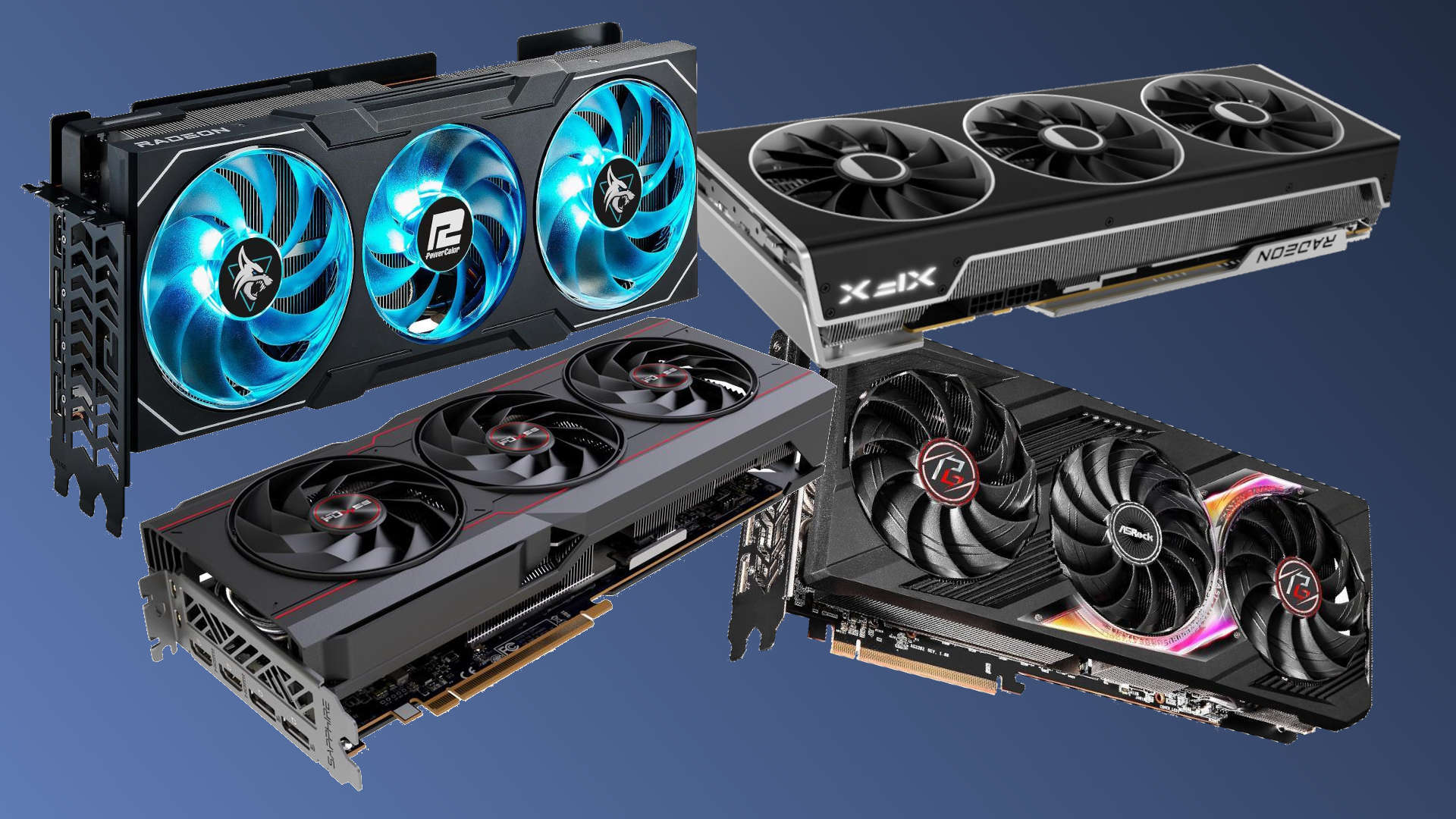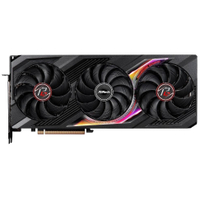AMD gatecrashes Nvidia's Super launch with a temporary $90 price drop and new MSRP for the Radeon RX 7900 XT
At just $710, it's the cheapest it's ever been and well worth considering.

In the battle for sales of graphics cards, there are only three combatants: AMD, Intel, and Nvidia. Unfortunately, it takes years to develop a GPU so when one of them launches a new product, the opposition is rarely in the position to fight back with a similarly new chip. But what they can do is invoke a temporary price drop, to pull customers' gaze away, and that's precisely what AMD has done to its Radeon RX 7900 XT.
With a normal SEP/MSRP of $799, AMD's second most powerful graphics card, the Radeon RX 7900 XT, is typically up against Nvidia's GeForce RTX 4070 Ti, which is the same price. However, the recent launch of the $599 RTX 4070 Super, which performs pretty closely to the 4070 Ti, means neither card looks all that tempting.
So AMD teamed up with its main board partners and selected online retailers (as spotted at TweakTown), and sliced $90 off the tags for ASRock, Sapphire, PowerColour, and XFX Radeon RX 7900 XT cards. In some cases, you'll need to employ a promo code to get the full discount, but at $710, it's the lowest the 7900 XT has ever been.
Even once these deals are over, the base price will only go back up to $749. That's a full $150 lower than when it launched, although it has to be said that the original $899 price tag never made any sense.
And it's not just in the US, as Germany-based Hardwareluxx is reporting that some EU stores are also selling the 7900 XT at the reduced price. I've yet to see any UK retailers show any reductions but that doesn't necessarily mean this market or others won't see any kind of discount.
ASRock RX 7900 XT | 20GB GDDR6 | 5,376 shaders | 2,450MHz boost | $799.99 $709.99 at Newegg (save $90)
Originally priced far too close to the superior RX 7900 XTX, the 7900 XT is a lot more of tempting deal at this price. With a similar performance to the RTX 4070 Ti, it's a really solid GPU but lacks the AI and ray tracing punch of the Nvidia model.
Other models:
- Sapphire Pulse - $709.99 (save $90, with promo code AS23ADNA6246)
- PowerColor Hellhound - $709.99 (save $90, with promo code AS23ADNA6244)
- XFX Speedster - $709.99 (save $90, with promo code AS23ADNA6245)
But is it going to be worth buying one when Nvidia has the RTX 4070 Ti Super just around the corner? That's expected to start at $799 for the standard model, with the fancier overclocked options being quite a bit more.
That's expected to be faster than the original 4070 Ti (well, you'd hardly expect it to be slower) so for the same money, you'd plump for the 4070 Ti Super. But $90 isn't exactly chump change, which makes this price drop quite a tricky proposition. Especially when you've got the $599 4070 Super poking its nose into things.
Keep up to date with the most important stories and the best deals, as picked by the PC Gamer team.
The Radeon RX 7900 XT is no slouch. It's a seriously powerful graphics card, packed with shaders and that 20GB of VRAM means you shouldn't experience any issues with running out of memory in some games.

Best CPU for gaming: The top chips from Intel and AMD.
Best gaming motherboard: The right boards.
Best graphics card: Your perfect pixel-pusher awaits.
Best SSD for gaming: Get into the game ahead of the rest.
Paired with features such as FSR 3, for upscaling and frame generation, and the fact that some games (e.g. Call of Duty) run better on AMD GPUs than Nvidia ones, and you've got a monstrous graphics card with a healthy discount.
But is it worth $110 more than the 4070 Super? It's certainly faster, but if you're a fan of ray tracing, generative AI, or content creation with the likes of Blender, then you're going to be better off going team green. Yes, the Radeon RX 7900 XT has more VRAM but it's not as vital as you might think.
On the other hand, if you're looking to do a big GPU upgrade and want to stick it to Nvidia and its high prices, then a $710 RX 7900 XT is a very tempting way to go about it all.

Nick, gaming, and computers all first met in 1981, with the love affair starting on a Sinclair ZX81 in kit form and a book on ZX Basic. He ended up becoming a physics and IT teacher, but by the late 1990s decided it was time to cut his teeth writing for a long defunct UK tech site. He went on to do the same at Madonion, helping to write the help files for 3DMark and PCMark. After a short stint working at Beyond3D.com, Nick joined Futuremark (MadOnion rebranded) full-time, as editor-in-chief for its gaming and hardware section, YouGamers. After the site shutdown, he became an engineering and computing lecturer for many years, but missed the writing bug. Cue four years at TechSpot.com and over 100 long articles on anything and everything. He freely admits to being far too obsessed with GPUs and open world grindy RPGs, but who isn't these days?


